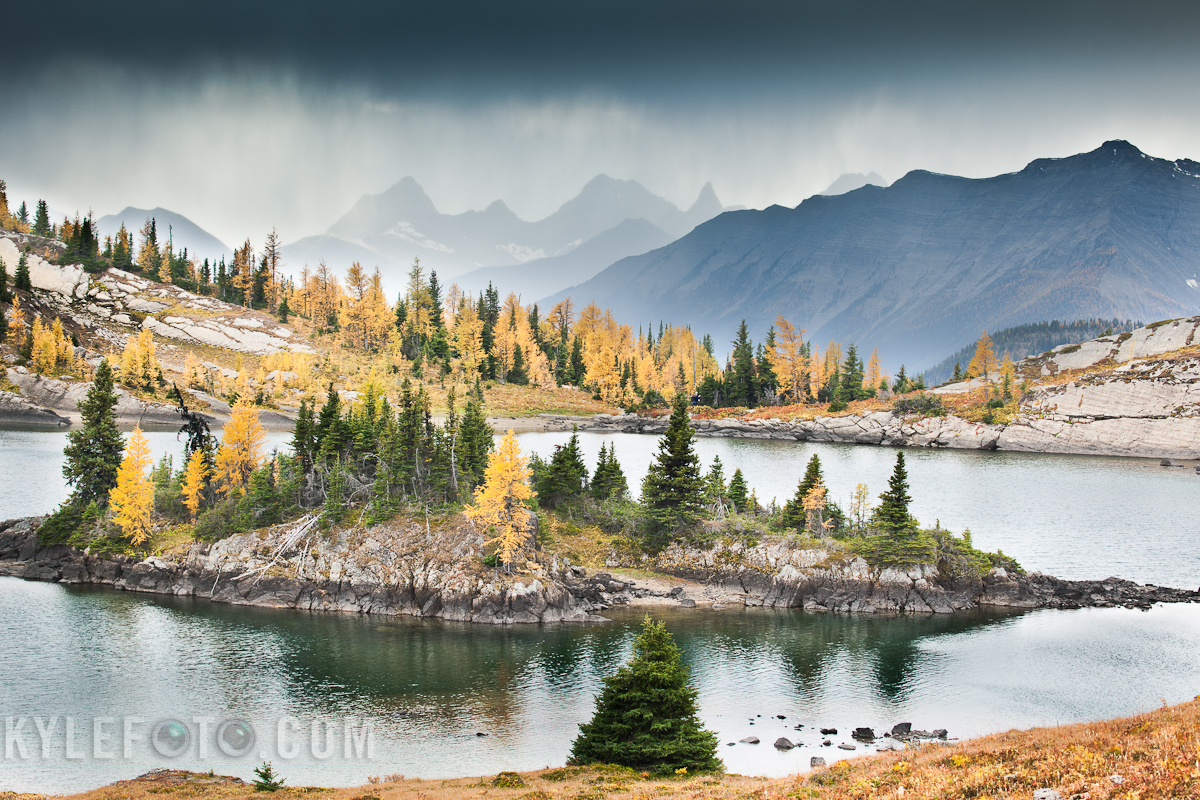larches of sunshine valley, before/after
Sunshine Valley, Rocky Mountains, Alberta, Canada.
I will show you the before and after of my RAW conversion, it’s my hope to demonstrate why a camera requires a photographer and without human direction, the photos they take aren’t accurate, and hardly representative of the experience it captured.
It was a spectacular day in the Sunshine Valley. I was sick as a dog but the beautiful sight of the larches kept my mind off of it. As my mood improved the weather worsened, as if mother nature was trying to offset my enjoyment. The wind began blowing and dark clouds started rolling in as a wall of rain headed towards my direction. The view of the lake was soon framed by the dark clouds and now the plain vista behind the lake was the dramatic view I was looking for.
In real life these clouds had the drama I was looking or, and as my highly evolved human eyes took in the scene I could see the darkness in the sky, and the subtle highlights in the trees. Most people don’t realize how much of a gift our vision is, until they see how the camera sees the world. It’s limited range of view compresses the highlights in the sky so that they are almost white. I look at the camera and think, “that stormy sky is not white, I’ll be able to bring that back later”.
What we don’t realize is the sky is always super bright to the camera, and even though the camera shows a white sky, shooting in high quality RAW my camera has secretly stored the details of that dark sky in there for me to coax out in my RAW processing.
 This was all accomplished in Adobe Photoshop Lightroom, with the brush and graduated filter tools by selectively decreasing and increasing the exposure. This process is called dodging and burning, and has likely been applied to every professional photograph you’ve ever seen. This technique has been around since the days of film, largely unchanged, it’s just done on computers now. Every photo needs to be calibrated with a human eye, and this is how you show others what it really feels like to be there.
This was all accomplished in Adobe Photoshop Lightroom, with the brush and graduated filter tools by selectively decreasing and increasing the exposure. This process is called dodging and burning, and has likely been applied to every professional photograph you’ve ever seen. This technique has been around since the days of film, largely unchanged, it’s just done on computers now. Every photo needs to be calibrated with a human eye, and this is how you show others what it really feels like to be there.


